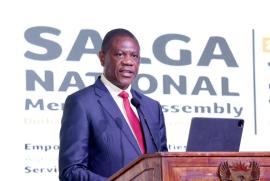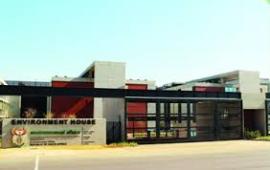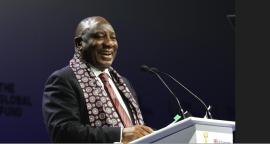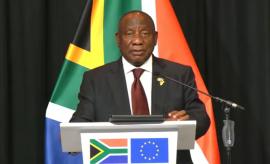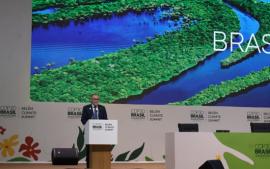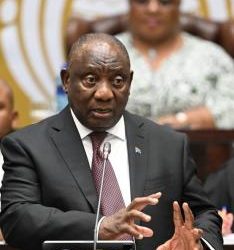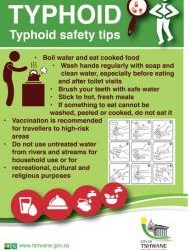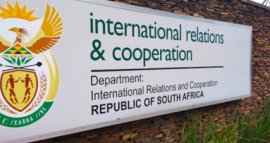By Gabi Khumalo
Rio de Janeiro, Brazil – President Cyril Ramaphosa says Brazil’s leadership of BRICS and COP30, together with South Africa’s Presidency of the G20, provides a unique opportunity to send a strong signal of unity and solidarity in support of the rights and interests of developing economy countries.
“Our concurrent leadership of these bodies must emphasise the pressing need to close the Sustainable Development Goals (SDGS) implementation gap and the climate ambition gap and ensure that just transitions pathways leave no one behind,” President Ramaphosa said.
He was delivering a keynote address during the “Environment, COP30 and Global Health” session of the 17th BRICS Summit in Rio de Janeiro, Brazil on Monday.
The President highlighted that BRICS – Brazil, Russia, India, China and South Africa – was a key platform to shaping a new model of multilateral cooperation based on equity, sustainability and inclusive development.
He called for the bloc to be used to drive climate-resilient development across Africa and the Global South.
President Ramaphosa underscored the importance of using BRICS’ collective voice to advance reforms to modernise multilateral development bank mandates and ensure they better reflect the voices and priorities of developing countries.
He called for scaled-up concessional financing for climate action to catalyse investments in early warning systems, resilient infrastructure, community-led adaptation, and people-centred just transition pathways.
“At the same time, we need to drive the global health agenda towards inclusive, equitable, innovative, and sustainable health solutions. Global health financing is being severely impacted by the substantial and sudden withdrawals of official development assistance.
“Many of the programmes that were supported through this assistance were for disease elimination and targeted towards the most vulnerable populations, like young women and girls, children and adolescents,” the President said.
While acknowledging the countries great strides made towards Tuberculosis, Malaria and HIV elimination, through the support of organisations like the Global Fund, President Ramaphosa warned these gains are being threatened by political attention and reduced financing.
As the co-host of the Global Fund’s 8th replenishment campaign together with UK Prime Minister Keir Starmer, President Ramaphosa called on countries, businesses and the wider donor community to contribute to the fund in the interests of global health security.
“If we achieve the target of US$18 billion for the 2027 to 2029 cycle, it is estimated that the Global Fund can save 23 million lives, reduce the combined mortality rate by another 64% relative to 2023 levels, and prevent around 400 million infections.”
He reiterated that investing in the Global Fund was also an investment in health system strengthening and universal health care, especially for vulnerable countries in the Global South.
“As we confront these and other development challenges, BRICS needs to be at the forefront of a new inclusive multilateralism. Let us use our growing voice to advance a global order that improves the lives of all the world’s people and safeguards the planet for future generations,” the President said.
The two-day summit, held from 6 to 7 July 2025, highlighted the ongoing humanitarian impact of Israeli military action in Gaza and in conflicts in Sudan, Ukraine, and Iran; and advocated for the sustainable resolution of conflicts through diplomacy, inclusive dialogue, and a commitment to the United Nations Charter.
It also explored ways of expanding tangible trade, tourism, investment, and financial cooperation within BRICS and with BRICS partner countries. – SAnews.gov.za


